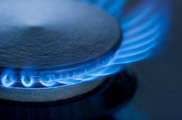In a move the company is calling “regrettably unavoidable” SSE, the UK’s second largest energy provider, has announced plans to subject their customers to a 9% rise in their gas and electricity bills in October.
 Yes, household energy bills are on the rise. Again.
Yes, household energy bills are on the rise. Again.
The news will be a blow to energy consumers and will undoubtedly put even more pressure on households already struggling to meet the cost of their electricity and gas bills. SSE has confirmed that the price hike will put an extra £8.53 on an average monthly dual fuel bill for around 8.4 million of its customers who pay by direct debit.
According to Consumer Focus the price rise will see SSE elevated to the position of the most expensive fuel provider out of the ‘Big Six’ for a typical dual fuel tariff.
Once again the rising cost of wholesale energy prices is being blamed for the price increase which will come into force from 15 October. Although SSE has said it will cap prices until at least the second half of 2012, it will be of little comfort for energy consumers already familiar with the punishment. While SSE is the first of the ‘Big Six’ to raise energy prices it’s surely only a matter of time before others follow in their footsteps.
“When one moves, others follow, and over the next three months I’d expect to see similar announcements,” said Martin Lewis of MoneySavingExpert.com, who is advising households to look into switching to better deals to make savings on their annual fuel bills.
“We can’t go through another winter with people worrying about their energy bills, the government and the regulator must reform our broken energy market,” added Which? spokesman Richard Lloyd.
Commenting on the increase, SSE’s Chief Executive Ian Marchant said the company was unable to keep prices at their current levels beyond the autumn due to energy price increases in wholesale markets, which has seen the average price of gas in the wholesale market subjected to a 14% price. The price increase means the average annual bill will rise to £1,274.
“We pledged last summer to cap our energy prices for as long as possible and until at least August 2012, and then in January extended this pledge to October 2012. Unfortunately, the increases in costs that we have seen since making this pledge can no longer be absorbed and mean that we are unable to keep prices at their current levels beyond this autumn,” Mr Marchant said.
“An increase in our prices has therefore, regrettably, become unavoidable,” he added.
The question is, who will be next?


